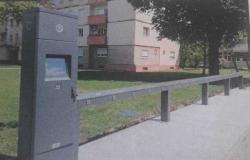
The US State Department confirmed: Romania fails to protect its citizens well enough, in this case women and children, the most frequent victims of domestic violence.
The report of the US State Department for the year 2023, in relation to Romania, published on April 21, brings a series of criticisms towards our country. From government corruption, to issues of not solving or late solving cases of violence against vulnerable people.
The US State Department report states that “in some cases, the government has not effectively enforced rape and domestic violence law.” Overall, “gender-based violence, including domestic violence, was a serious problem,” because “Police lack procedures for enforcing and monitoring protection orders. Courts have handled very few cases of domestic violence”.
In an interview for Newspapers.com Anca Elena Bălășoiu, lawyer, university professor and civic activist.
Ziare.com (Andi Miron): How do you evaluate the policies assumed by Romania in the last decade, to combat domestic violence, respectively violence against women, and what are the main problems in the system?
Anca Elena Bălășoiu: Some measures have been taken in recent years, steps are being taken, but very few in terms of effectively combating cases of domestic violence. There are multiple causes.
Unfortunately, the police – because they are the first to reach the victims, most of the time, they are not trained to fill out the forms necessary to issue a provisional protection order.
Unfortunately, the Romanian Police has been dealing with a staff shortage for many years, especially in rural areas. These aspects lead to a disincentive for victims to approach law enforcement authorities in terms of issuing a protection order. 52% of Romanians live in the countryside, so we can think that at least half of the cases of domestic violence happen there. We are also talking about a staff shortage at the prosecutor’s office level as well, because any provisional protection order is first subject to confirmation by the prosecutor and then by the court.
It is also a problem related to the provision of mandatory legal assistance for the victim. This is provided for in the legislation, but most of the time, the victim receives a lawyer ex officio only when the court is reached. Thus, the prosecutor can reject the victim’s request to issue a protection order because the injured person did not know that he had to gather even minimal evidence, that he was not referred to a forensic medicine institute. Then the prosecutor can reject the act of violence as unproven. Thus, it is no longer possible to go to court.
We are facing a lack of technical knowledge, usage, application of these electronic bracelets, which are not widely used as often as they should be.
There are no video surveillance systems everywhere, nationwide. In addition, there are also a lot of violations of the orders. The abusers attack the victim again or try to contact her, and very rarely the arrest of the abuser is ordered.
In cases of rape, Romania is famous for the fact that these cases are motivated, very often, quite superficially, too small punishments are established.
Ziare.com: From your experience as a lawyer, but also as a volunteer in various actions to combat the phenomenon, how useful is the protection order today, compared to a decade ago?
AEB: The protection order as a legal tool is much more popular than it was ten years ago. Since last year, the maximum period for which a protection order can be issued has been extended from six months to a year.
Ziare.com: What are the chances that an order issued for say six months will be extended by another court action for three to six months?
AEB: If the order is issued for six months, as to the extension, it depends on the conduct of the aggressor. If the aggressor has the tendency and actually commits acts of violation of the protection order, the court can issue a decision in this regard. Usually, the court will rule on the extension of the order if new issues arise that would justify such an extension, because the protection order, as a legal instrument, was created to remove a state of imminent danger. Cases of extension are quite rare.
Ziare.com: What if the provisional order issued by the Police expires, and the court date is set in ten days? Does the victim remain protected?
AEB: The order issued by the Police “on the spot” is issued for five days, but it is extended by law after it has been confirmed by the prosecutor, until the order is confirmed by the court for 6-12 months, depending on the case. So the victim remains protected even after the five days, until the court’s decision. Sometimes it takes seven to eight days until the court establishes the protection order.
Ziare.com: How frequent are the cases in which women postpone breaking up with the violent aggressor, respectively notifying the authorities of the abuses they have been subjected to?
AEB: We need to put more emphasis on prevention. Very often, victims consider that a form of domestic violence is just an insignificant aggression. Thus, years pass until the victim reaches the authorities or an association. In addition, there are other causes that discourage the victim: children appear, sometimes the victims do not have a job, lack of social security, lack of prospects, lack of social assistance – in the sense that not all counties have reception centers for victims of domestic violence. Not all victims know that issuing a protection order can lead to the eviction of the aggressor even if he is the owner of the property in question. Some victims think that ‘he will come after me’, ‘we work in the same place and he won’t keep his distance’ or that ‘the world will find out’ or ‘what will the family say?!’ Many times, victims are not supported by family members when it comes to taking legal action.
Ziare.com: To what extent is it a problem that criminal complaints for crimes such as beatings or other violence lie in the drawers of investigative bodies, so that many aggressors do not even get to have the status of defendant or the prosecutor ends up establishing this status for them much too late, after the perpetrator abuses the victim again?
AEB: It is a problem that persists in Romania since the entry into force of this law, for a very long time. The slowness with which criminal cases are processed, as you very well said, hangs very heavily in the resolution of these cases. The protection order, no matter how much we improve it, is a temporary application. It takes a very long time to process files. Many times it is ranked, for some reasons that even we, the practitioners, cannot understand, such as ranking for the insufficiency of medical days, the intervention of the prescription. Sometimes you get the impression that everything is being done, only justice for the victims, not. Sometimes victims are encouraged to withdraw their complaints by the authorities, the police.
Ziare.com: How far can the failure of justice go?
AEB: The victim is usually encouraged to withdraw his complaint when he does not have a lawyer. They are told by the Police, informally, that there are already many files in the works, that the files will be classified, that there will be legal costs. But those legal costs are modest, a few tens of lei, but the victims do not know this. I have files with assaults from 2016-2017 as well and I have not received any kind of solution. In this case, we are talking about prescription. I had a client with punctured lungs, but the deed was prescribed. We, as lawyers, still have some leverage, you have to make a request, make a phone call, inquire about the stage of the investigation, propose a witness, if you have one, attach the medico-legal certificate, draw attention to the file. Otherwise, you have nothing to do. You wait for your turn, but here you run into the problem I told you about at the beginning of the discussion, the lack of staff. I don’t want to think about bad faith, although there are also cases of corruption.
Higher and higher fees and taxes, but less and less staff in crucial areas
- Meanwhile, the Government of Romania continues to increase taxes and fees, although the quality of public services has not been improved. In the last two years, PSD+PNL introduced and increased several taxes, raised the VAT, increased the rates for various public services. Now, in order to attract even more money to the budget, the decision-makers would have on their agenda the rethinking of the housing tax. Obviously, it would be bigger.
- In Romania, the inflation rate continues to reach alarming levels, the highest in the European Union.
- Romania’s external debt reached a new record this year.
- While Romania has fewer doctors and policemen than the European average, relative to the population, our country is “champion” when it comes to the number of bureaucrats in various institutions such as town halls, ministries, etc. Many of them would have entered the system “on the party line”. Also, the human resource in other crucial fields, such as the army and justice, is undersized, especially compared to that in the administrative field.
The US State Dept. report, in relation to Romania, in which reference is also made to the neglect of vulnerable people, can be read in full, HERE.
Tags: Romania neglects victims domestic violence Lawyer reaction harsh report State Dept client perforated lungs deed timebarred
-




